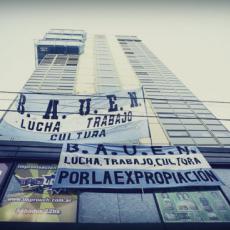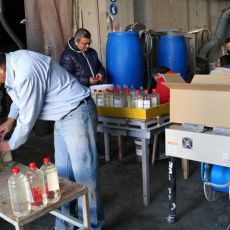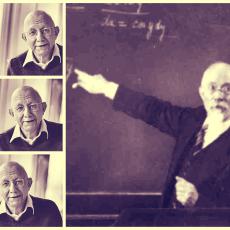Array
-
Spanish02/11/11
En diferentes países se observa el crecimiento de iniciativas de producción y de prestación de servicios, organizados con base en la libre asociación y en los principios de cooperación y autogestión, a partir de programas y acciones de los sectores público y privado, con el objetivo de promoverlas como opción de empleo y renta. Estas acciones pueden ser interpretadas dentro del ámbito de la Economía Social (ES) y específicamente en algunos países de América Latina, como en el Brasil, dentro del contexto de la Economía Solidaria (ESOL). En Brasil la ESOL penetró en la pauta de las políticas públicas, en las estructuras gubernamentales, y es tema de discusión en grandes encuentros políticos nacionales. Sin embargo, la ESOL trata de una realidad económica heterogénea y, hasta el momento, no existe acuerdo sobre cuáles son sus fronteras. En Brasil, con excepción de los tradicionales estudios sobre cooperativismo, la producción científica sobre el tema de la ES y ESOL es relativamente nueva y presenta una cantidad creciente de investigaciones sobre iniciativas socioeconómicas. El objetivo de este trabajo es discutir, en primer lugar, el concepto de la ES y ESOL en Brasil para, posteriormente, presentar los principales programas en el ámbito de la ESOL así como las dificultades de los programas de generación de empleo y renta a partir de instituciones públicas de la ESOL (SENAES – Secretaria Nacional de Economía Solidaria del Ministerio del Trabajo y Empleo de Brasil).
Documento completo en espanol para descargar en pdf
Αλληλέγγυα Οικονομία, 21ος αιώνας – Εργατικός Έλεγχος στη Σύγχρονη Εποχή, Βραζιλία, Λατινική ΑμερικήTopicΝαιΝαιNoΌχι -
English02/11/11
Argentina’s movement of worker-recovered companies (WRC) gained significant public visibility during and in the years following the institutional crisis of December 2001. In light of company shutdowns and dramatic increases in unemployment
rates, many workers promoted the reopening of workplaces abandoned by their owners, giving origin to a movement that still exists to this day. Collectively, the actions centred on workplace and job “recoveries” have made up the distinguishing feature--or the “identity”--of the movement. Even though today’s conjuncture is somewhat different than
Argentina at the turn of the millennium, the universe of WRCs continues to expand. Moreover, the movement’s new actors inscribe the earlier experiences of older WRCs onto their newer recoveries via their reinterpretation of collective memory. The
objective of this article is to describe and analyze the characteristics of the expansion of the universe of WRCs in Argentina and compare the limits and potentialities between
newer and older experiences of workplace recoveries. It also explores the specifics of how this expansion is due to a historical rereading of older worker experiences that influence how newer WRC protagonists self-identify with the broader WRC movement.Full text in English to download as pdf
Published in "Affinities: A Journal of Radical Theory, Culture, and Action"
Volume 4, Number 1,
Summer 2010, pp. 252-287.
Translated by: Paola Salamida, Gustavo Rajher, María Sol Santa Cruz, Marcelo VietaΑργεντινή, Carla Giacomuzzi, Héctor Palomino, Ivanna Bleynat, Ανακτημένες Επιχειρήσεις, Silvia Garro, 21ος αιώνας – Εργατικός Έλεγχος στη Σύγχρονη Εποχή, Λατινική ΑμερικήTopicΝαιΝαιNoΌχι -
English02/11/11An essay that reports on the work and struggle of Indian landless Dalit women farmers in organizing a network of credit and marketing cooperatives into an egalitarian political body of production.
Dalit women farmers in the district of Medak, Andhra Pradesh, India formed a mutual aid credit cooperative (MACC) in the early 1990s with the support of a development NGO, the Deccan Development Society (DDS). In India, mutual aid credit cooperatives come out of a new wave of reform that emerged within the Indian cooperative movement as transnational financial institutions began to gain control of microfinance banking. Taking the DDS-MACC as an example of the “new cooperativism,” this essay reports on the work and struggle of nonliterate and landless Dalit women farmers in organizing a network of credit and marketing cooperatives into an egalitarian political body of production they call a Sangham (a term derived from Buddhist traditions). The essay outlines the
conjunctural transformations through which the subordination of Dalit small farmers to national and world-scale assemblages of domination and accumulation by dispossession have increased in recent decades; it describes the formation of the Sangham network
and its projects for gaining autonomy and draws some general theoretical conclusions from the Sangham strategy regarding the historical situation of the new cooperativism.Full text in English to download as pdf
Published in "Affinities: A Journal of Radical Theory, Culture, and Action"
Volume 4, Number 1,
Summer 2010, pp. 110-132.
1960-2000 – Εργατικός 'Ελεγχος ενάντια στην Καπιταλιστική Αναδιάρθρωση, Ασία, Συνεταιριστικό Κίνημα, Sourayan Mookerjea, ΙνδίαTopicΝαιΝαιNoΌχι -
English02/11/11
This article looks at the vibrant cooperative movement within the context of the “Bolivarian Revolution” in Venezuela. While the cooperatives represent one of the most encouraging signs of radical democratic potential in Venezuela, there are conflicting
trajectories within the country that make the future of the “Bolivarian Revolution” unclear. This paper argues that the cooperative movement can only be sustainable and transformative of Venezuelan capitalism if it is integrated into a larger project of
economic democracy.Full text in English to download as pdf
Published in ” Affinities: A Journal of Radical Theory, Culture, and Action"
Volume 4, Number 1,
Summer 2010, pp. 155-175.
Συνεταιριστικό Κίνημα, Tom Malleson, 21ος αιώνας – Εργατικός Έλεγχος στη Σύγχρονη Εποχή, Βενεζουέλα, Λατινική ΑμερικήTopicΝαιΝαιNoΌχι -
Spanish01/11/11
En este artículo se presenta los eventos del Archivo de Mayo en la biblioteca de la Universidad Simon Fraser y explora su contenido en términos del papel de la idea de la autogestión en París en 1968. Los documentos en el archivo muestran que los acontecimientos de mayo fueron un movimiento de conciencia política por el socialismo democrático, en contra de la condena generalizada de los intelectuales conservadores que argumentan que los estudiantes y los trabajadores no tenían metas positivas en 1968, pero que sólo participan en quejas auto-indulgentes. El artículo también señala el importante papel de las camadas medias de empleados y profesionales en los acontecimientos de mayo.
Articlulo en español en pdf:
https://www.sfu.ca/~andrewf/mayport.pdf
June 2011
1960-2000 – Εργατικός 'Ελεγχος ενάντια στην Καπιταλιστική Αναδιάρθρωση, Andrew Feenberg, Μάης 1968, Εργατική Αυτοδιαχείριση, Γαλλία, ΕυρώπηEraΝαιΝαιNoΌχι -
Portuguese, Portugal01/11/11Teorias e realidades
Este texto consiste em um balanço de estudos sobre Economia Solidária, um fenômeno que vem se difundindo rapidamente no contexto de profundas transformações por que vem passando o mundo do trabalho. Trata-se de discutir, de um lado, o quadro teórico que os estudos sobre o tema vêm conformando tanto em nível internacional, como nacional, e, de outro, a importância que o fenômeno vem adquirindo nos dois casos. Ele se articula, nesse sentido, a partir de três objetivos principais. Em primeiro lugar, busca delimitar a discussão teórica sobre o tema, abarcando não só os que a entendem como o prenúncio de um processo de transformação social, mas também aqueles que têm uma visão mais crítica do fenômeno, enfatizando seu caráter efêmero e pouco alentador no sentido de se configurar como uma alternativa de geração de emprego e renda. Em segundo lugar, ele se debruça sobre o exemplo argentino, uma das experiências mais interessantes de difusão do cooperativismo como um fenômeno social expressivo nos primeiros anos da presente década. Finalmente, o texto propõe uma análise da experiência brasileira a partir de balanços nacionais. As considerações finais traçam algumas conclusões sobre os estudos analisados, sublinhando a complexidade do tema e a impropriedade de se pensar em termos dualistas seja no sentido de suas potencialidades e virtualidades, seja no de seus limites e vulnerabilidades.
Full text in Portuguese to download as pdf
2009
Marcia de Paula Leite, Αλληλέγγυα Οικονομία, 21ος αιώνας – Εργατικός Έλεγχος στη Σύγχρονη Εποχή, Βραζιλία, Λατινική ΑμερικήTopicΝαιΝαιNoΌχι -
English01/11/11
In this paper, I address the question as to the extent to which the participatory and democratic processes taking place as part ofVenezuela's new cooperative movement can be said to be a component for the building of social relations that challenge those of capitalism. I begin with a discussion of praxis and learning. Then, I attempt to situate the role of cooperatives and the participation therein within the context of capitalism. In the second half of this paper, I look at Venezuela’s new cooperativism and present preliminary findings based on an ethnographic study of three of Venezuela’s Socialist Production Units (SPUs), the country’s newest cooperative spaces. SPUs, I argue, are contradictory spaces where participants are experiencing a tension between reproductive and revolutionary praxis. In addition, they are spaces in which participants are acquiring important learning that challenges dominant market relations. Therefore, I conclude, SPUs are taking modest but important steps towards the building of Venezuela’s
socialism in the 21st century.Full text in English to download as pdf
Published on "Affinities: A Journal of Radical Theory, Culture, and Action"
Volume 4, Number 1,
Summer 2010, pp. 288-309.
Συνεταιριστικό Κίνημα, Manuel Larrabure, 21ος αιώνας – Εργατικός Έλεγχος στη Σύγχρονη Εποχή, Βενεζουέλα, Λατινική ΑμερικήGeographicalΝαιΝαιNoΌχι -
Spanish01/11/11
Argentina: governance and social movements. The case of National Movement of Recovered Companies
This work makes an attempt to understand the political strategies that are used by the National Movement of Reclaimed Enterprises (MNER); examining the relationships they established with the (governmental) political system and the national entrepreneurs. We examine to what degree the political opportunities were leading the MNER towards the definition of new strategies and their impact on the movement. The analysis starts from a documentary exploration of texts produced by and about the MNER; In-depth interviews were conducted with members and former members of the MNER. Collective action by workers (occupation and recovery of enterprises), contributed to the definition of new political opportunities and changed the political structure of the MNER, contributing to the extension of these opportunities to the national entrepreneurs and the Government.
Full Text in Spanish to download as pdfJune 2011
Αργεντινή, Natalia Vanesa Hirtz, Ανακτημένες Επιχειρήσεις, 21ος αιώνας – Εργατικός Έλεγχος στη Σύγχρονη Εποχή, Λατινική ΑμερικήTopicΝαιΝαιNoΌχι -
Portuguese, Portugal01/11/11
No plano teórico, ao problematizar a rígida sepação entre meios e fins, liberdade e necessidade, esta dissertação interroga sobre as possibilidades e os entraves à criação democrática no interior de relações de produção, que estão submetidas aos imperativos da esfera da reprodução. No plano empírico, as empresas de trabalhadores autogeridas, que surgiram a partir das transformações no mundo do trabalho no Brasil da década de 90, introduzem de forma contraditória elementos da ordem moral no seio das relações de trabalho. O que emerge do conflito entre a lógica gestionária e a lógica política? Quais são os dilemas que estão postos por essas experiências? Essas questões são analisadas em três dimensões: as relações de produção, os trabalhadores e o contexto socioeconômico em que as empresas autogeridas estão inseridas. Partindo das contradições (internas e externas) vividas pelas empresas autogeridas a discussão evidencia a própria constituição sócio-política do campo econômico e das condições de eficiência. Na parte final, o texto questiona a emergência das empresas autogeridas e da Economia Solidária a partir das seguintes encruzilhadas: a relação entre a criação de espaços democráticos e o processo de desregulamentação das relações de trabalho; a relação entre teoria e instituição do real; entre técnica e política, e ainda, entre ação de sobrevivência e ação criativa. A dissertação conclui afirmando que é justamente o fato das empresas autogeridas introduzirem uma descontinuidade na ordem gestionária da vida (não-política e não-humana), que cria a possibilidade de constituição de um espaço potencialmente democrático que pode ou não se realizar.Full text in Portuguese to download as pdf
Sao Paulo, 2002
Henrique Zoqui, Εργασιακή Διαδικασία, Martins Parra, 21ος αιώνας – Εργατικός Έλεγχος στη Σύγχρονη Εποχή, Βραζιλία, Λατινική ΑμερικήTopicΝαιΝαιNoΌχι -
Portuguese, Portugal01/11/11
As mudanças recentes observadas no mundo do trabalho, caracterizadas pela flexibilização, precarização e, sobretudo, pelo desemprego têm estimulado a associação dos trabalhadores em torno da solidariedade buscando diferentes estratégias de sobrevivência, dentre elas, o cooperativismo. O presente estudo enfoca as relações de trabalho numa cooperativa de produção. A análise priorizou a escolarização, a qualificação dos trabalhadores, as relações de gênero e as relações pedagógicas. Ao Indagar em que medida os princípios da cooperação e da autogestão possibilitam relações de trabalho democráticas e solidárias, constatou-se permanências e continuidades na organização do trabalho, bem como a construção de espaços de mudanças, favorecidos pelo aprendizado cotidiano do cooperativismo e da autogestão, mediado, permanentemente, pelo campo político relevante nessas organizações.
Full text in Portuguese to download as pdf
Tese (Doutorado em Educação)
Universidade Estadual de Campinas. Faculdade de Educação.
Programa de Pós-Graduação em Educação.
2004. Campinas.
Liliana Segnini, Marisa Nunes Galvao, 21ος αιώνας – Εργατικός Έλεγχος στη Σύγχρονη Εποχή, Βραζιλία, Λατινική ΑμερικήEraΝαιΝαιNoΌχι




